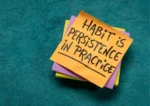“Financial literacy is a life skill—yet many never get the manual.” That’s the insight that drives Benjamin Ang, a passionate advocate for insurance, financial literacy, and adviser empowerment. With over two decades of experience across journalism, corporate communications, and the financial services sector, Benjamin is the Founding Editor of platforms like Money Playschool and Adviser...
RELATED ARTICLES
© NewInAsia.com 2025








